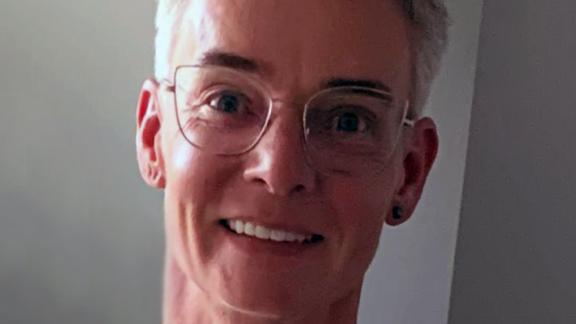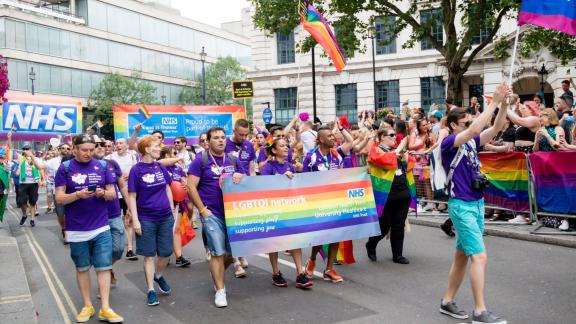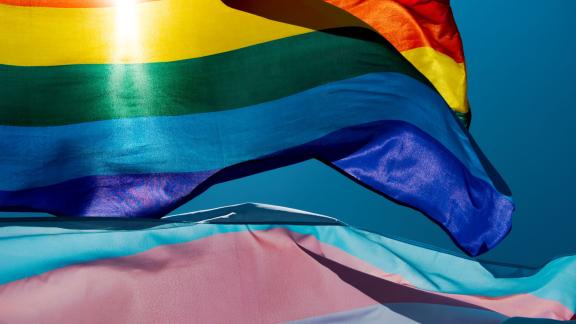Could LGBT+ networks be losing their way?

LGBT+ staff networks have gained a lot of ground in recent years, giving voice, visibility and belonging to the LGBT+ community. In LGBT+ History Month, Dr Anna Einarsdóttir, principal investigator into LGBT+ networks within the NHS, asks if they become too process driven at the expense of people's identities and needs.
Writing about LGBT+ history and reflecting on how things have moved on is something I am always happy to do. Yet every year, I find myself wrestling with the same set of questions. What is progress? Have we reached a point of stagnation or even regression, and is it possible that history can both liberate and trap us?
I am writing this at the back of our research into LGBT+ employee networks across the NHS. What we found fills me with a sense of hope and pride but, also, a touch of apprehension. Not necessarily about what has been achieved but the here and now, and where LGBT+ networks could be heading.
Voice and visibility
Historically LGBT+ employee network were formed to create a safe space for gender and sexual minority employees. Principally to share experiences but also to raise awareness of LGBT+ related matters. Back then, voice and visibility were the central pillars of networks and, to a large extent, they still are.
As a community we still want to be seen and heard but these matters seem to play out differently. Our research shows that many LGBT+ employee networks have organisational visibility; LGBT+ network members are more likely to report openness about sexuality than non-members, and on the whole, networks have a voice, albeit of varied strength.
However, what we also observed is that offering a safe space seems less of a priority and, instead, (many) networks are preoccupied with evidencing and, to a degree, staging impact to align with organisational priorities.
LGBT+ networks research
As a research team we took part in network meetings and activities, interviewed members and those who support networks, surveyed over 4000 NHS employees and generated approximately 120 video messages recorded by NHS staff.
Each source represents a piece in a large puzzle and helps to explain how networks operate and why the need to be seen and heard by their organisation remains so strong. In part, this can be explained by the pressured environment, sparsity of resources and, above all, progressively divided attention by everyone concerned.
With that in mind, it is perhaps not surprising that networks have become procedural with formal meetings and agendas. Issues to report on, matters to be discussed, actions to agree and follow up on. After all, networks need to evidence what they do and their impact, but at what cost?
Identities and needs
The short answer is: LGBT+ network members and allies have become less visible to each other. LGBT+ networks meetings are typically not about the people in attendance or the identities they embody and/or represent. Meetings seems to have moved from sharing experiences to informing, updating and reporting with professional identities superseding gender and sexual identities.
As a result, LGBT+ identities can, and in many cases, do remain hidden. The person sitting next to you could be lesbian, gay, bisexual, trans, queer, an ally, or some with a different identity, who knows? But does it matter? Yes. Networks need to know their members to identify what groups are represented, those who are not represented and what groups are over-represented.
LGBT+ is not an identity but represents a group of people with different identities and needs. If you can relate to the view that networks have become more process driven than about people’s identities and needs, our research report and a two page summary with key messages and recommendations may offer some advice on how to change the focus.
LGBT+ History Month
During LGBT+ history month, we will be premiering a film inspired by our research findings. Any Other Business tells a story of Natasha, a lesbian cisgender media officer at Greenwell Trust and the LGBT+ employee network Voice.
As the incoming chair of Voice, Natasha faces some fundamental questions about the purpose of the network, issues around inclusion, and where the network is heading. Please join us for the premier of Any Other Business and a live Q&A panel debate on Tuesday 23 February from 3pm- 4.30pm. Tickets can be booked here.
At the premier we will also be launching a free toolkit to help drive conversations about networks with your own locally formed Q&A panel.
I hope to see you on at the event.
Happy LGBT+ history month!
Dr Anna Einarsdóttir is a senior lecturer in work, management and organisation at the York Management School, University of York. She is the principal investigator of a major Economic and Social Research Council funded research into LGBT+ networks within the NHS. Follow Anna on Twitter @einarsdottir_a



